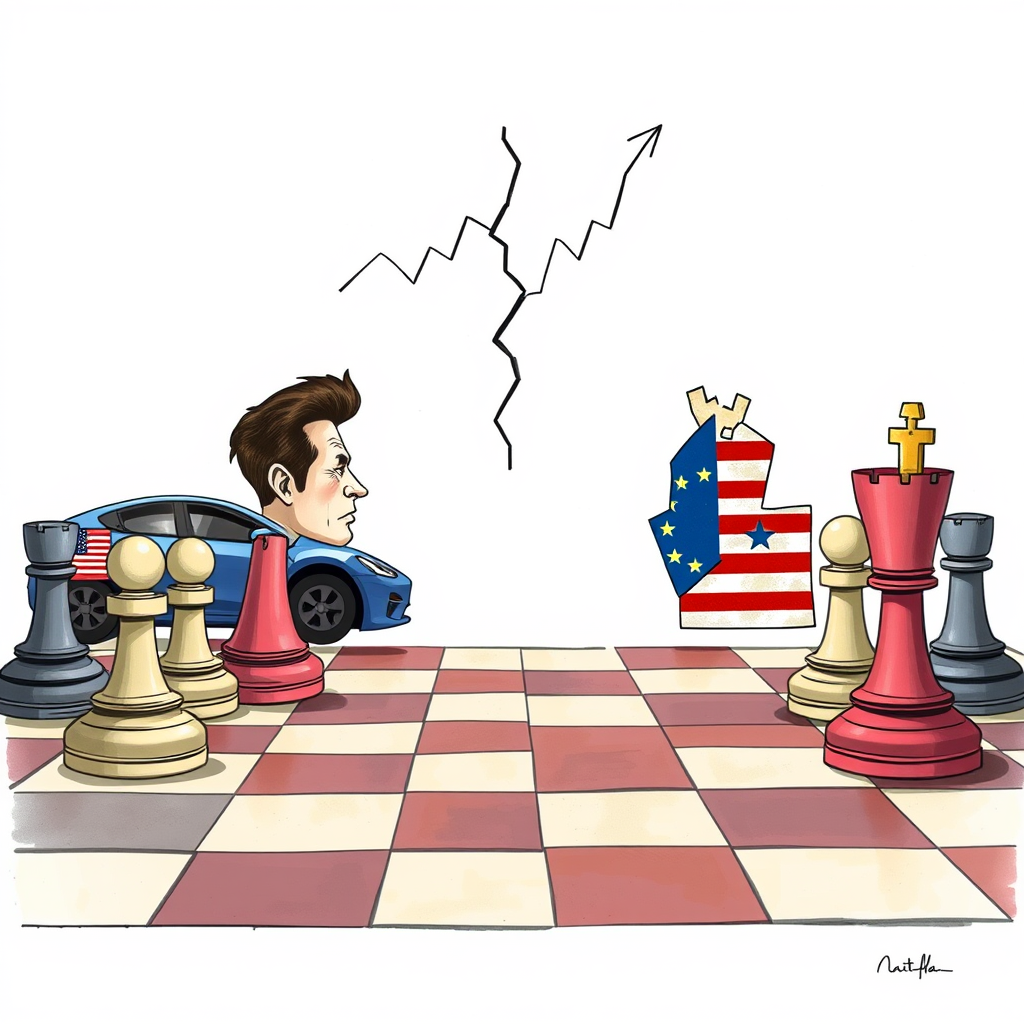Musk, Trump Advisor Clash Over Tariffs, 'We Like It'

A public clash between Tesla CEO Elon Musk and former Trump trade advisor Peter Navarro has exposed divisions within the Trump administration regarding trade policy, even as the White House appears to view the dispute with amusement. The conflict centers on the impact of Trump’s tariffs, which Navarro staunchly defends as vital for American manufacturing, while Musk argues are detrimental to Tesla and the broader economy.
The dispute ignited when Navarro, in a CNBC interview, dismissed Tesla as merely an “assembler” of cars reliant on imported components, contrasting it with a vision of fully domestic vehicle production – “tires made in Akron, transmissions in Indianapolis.” Musk swiftly retaliated on his social media platform X, launching a personal attack on Navarro, labeling him with harsh insults and asserting that Tesla produces the most American-made vehicles.
Musk has directly appealed to Trump to reconsider the tariffs, as reported by the Washington Post, and recently advocated for zero tariffs between the US and the European Union during an appearance at a right-wing conference in Italy, stating this was his advice to the president. Navarro countered by accusing Musk of prioritizing Tesla’s bottom line over national interests, and initially mocked Musk’s Harvard Ph.D. on social media, sparking the initial volley of insults.
The White House has downplayed the escalating tension. Spokeswoman Karoline Leavitt characterized the exchange as typical male posturing, while a senior advisor, according to Axios, admitted, with a chuckle, “We like it.”
However, the underlying issue of tariffs remains a significant concern. Analysts warn that the policy has contributed to market volatility and heightened fears of a recession, potentially leading to increased consumer costs and economic instability. This public disagreement underscores the complex and often conflicting priorities within the administration, revealing a tension between nationalist manufacturing goals and the realities of a globally integrated automotive industry. While the White House may find the spectacle entertaining, the long-term economic consequences of this trade dispute deserve serious consideration. The situation highlights a fundamental question: can protectionist policies truly foster sustainable growth, or do they ultimately stifle innovation and harm consumers?